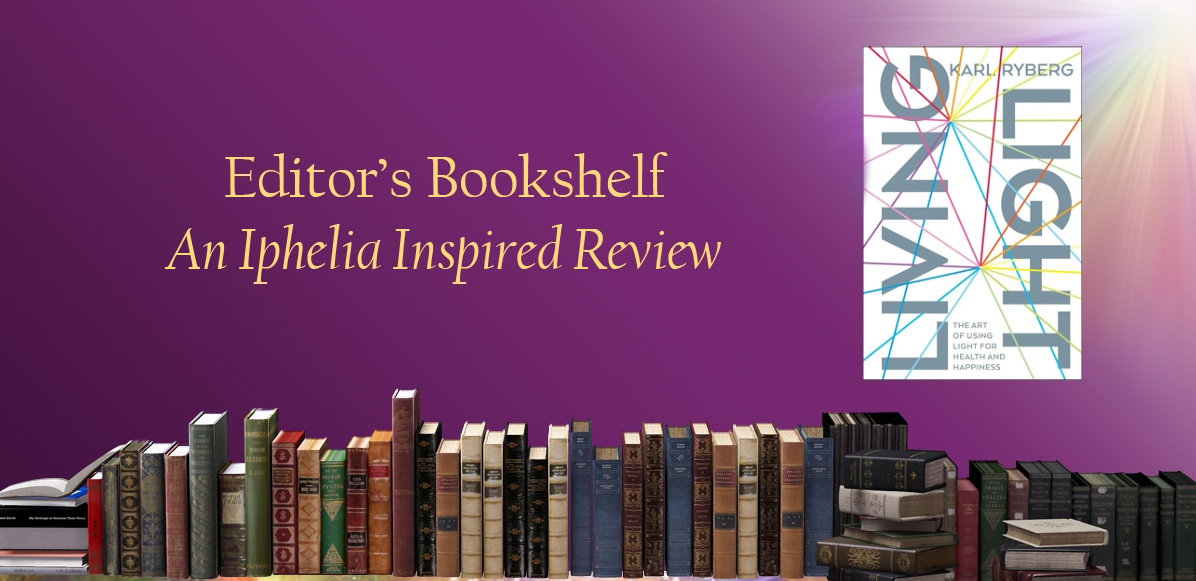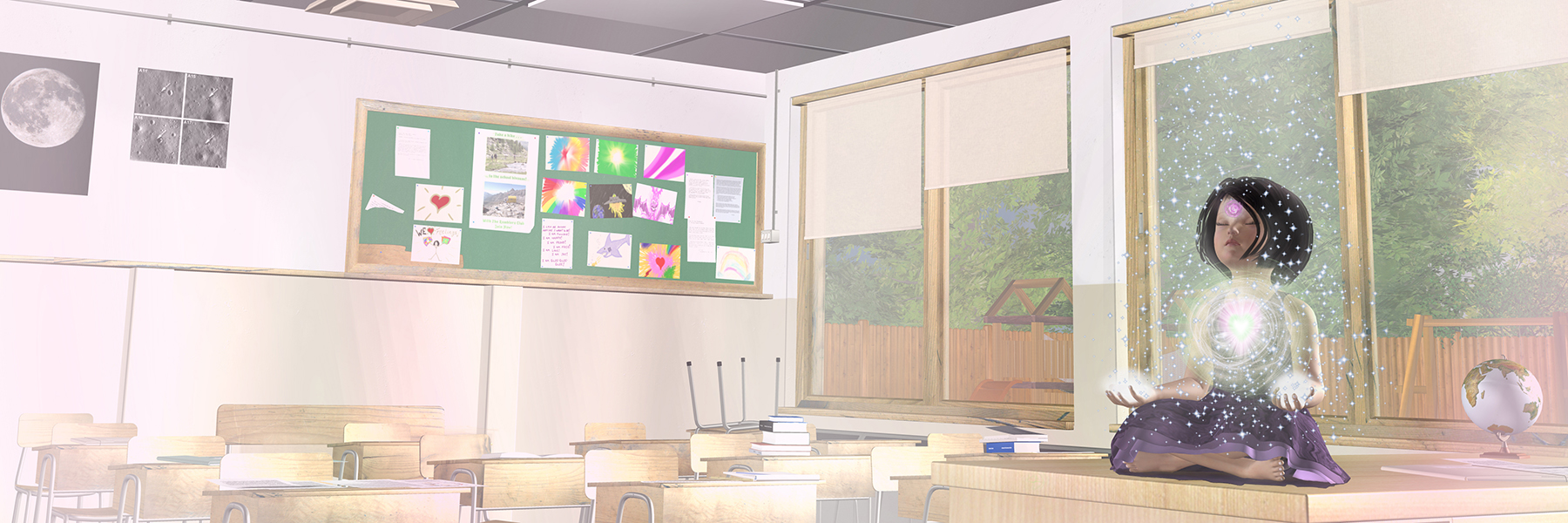
My two favorite images from
It comes from two different sources. In one, it’s afternoon sunlight flowing in through a window as
Of course, if you’ve read

Given my own affinity for light (and thus my love of campfires, starry skies, full moons, mirrors, and windows—the more the merrier!), I was thrilled to have the opportunity to read and review Karl Ryberg’s book Living Light.
While the title might sound a bit “out there,” Living Light is a book grounded in Ryberg’s research on the relationship between light and biology. It’s full of facts about how different light sources impact our health and the wellbeing of the planet, plus suggestions for leveraging light sources wisely to enhance our lives.
Ryberg, an architect

Some of the most exciting portions of this book include Ryberg’s support of safe sun exposure, his tips for choosing paint colors in homes and offices, and a section on eye yoga—physical exercises for eye health. His teaching on different types of artificial light is also intriguing, though if a reader wanted to overhaul the bulbs and fixtures they’re using in their home or workplace, they’d likely need to reread certain sections of Ryberg’s writing, consult an expert, and/or check out the numerous resources Ryberg suggests as further reading and cites in the book’s notes.
While I welcomed Ryberg’s idea of a “light diet”—i.e. a thoughtful consideration of the quality and quantity of light sources we’re consuming in a day, a week, etc.—I was a bit surprised that the book’s eighth and final chapter, “The Light Diet,” was actually about food sources. He introduces the relevance of these ideas by suggesting some foods are better than others for nourishing the body’s five light gateways: “the eyes, brain, blood, skin, and ligaments.” Of
Organizational critiques aside, Living Light is very easy to read and packs a lot of information into what feels like not so many pages. It will be especially welcome by those who are interested in environmental psychology, non-pharmaceutical interventions for various depressive states, including seasonal affective disorder, and interacting more healthfully with technology in everyday life.
Editor’s Bookshelf is a regular review of soon-to-be-released books that, in the spirit of
Iphelia , asks important questions about how the written word—and in some cases, imagery—are used to help readers reconnect with their feelings, themselves, each other, and the world around them.
Iphelia’s editor, Linsey Stevens, answers these questions—chiming in on who will be most captivated by each book’s contents and how it invites readers to return to a heart-centered way of being.
Living Light by Karl Ryberg will be available on February 5, 2019 from Atria Books. For a taste of Ryberg’s work and more on the Monocrom institute in Stockholm, check out monocrom.se. For more on Iphelia: Awakening the Gift of Feeling, visit our book page.

